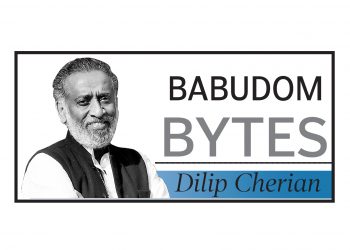The recent move by the government to induct Indian Revenue Service (IRS) officers into the Central Bureau of Investigation (CBI) has sparked some discontent within the Indian Police Service (IPS) ranks. Traditionally, the CBI has been the stronghold of IPS officers or its cadre recruited at the Deputy Superintendent of Police (DSP) level. However, this shake-up aims to leverage the specialized expertise of IRS officers in tackling the surge of financial fraud cases.
Recently, the Department of Personnel and Training (DoPT) appointed five IRS officers to the rank of Superintendent of Police (SP) in the CBI. These officers, from the 2014 and 2016 batches, are expected to serve for a five-year tenure. The government’s rationale is clear: with economic offences on the rise, the CBI needs personnel with a deep understanding of financial matters. The IRS officers, with their background in handling complex tax and financial issues, are seen as the right fit for this challenge.
Moreover, an IRS officer from the 2017 batch, Vijendra Kumar, who was already serving as a Deputy Inspector General (DIG) in the CBI, had his tenure extended by another year. This move further signals the government’s intention to integrate IRS expertise into the CBI’s operations.
This decision, however, hasn’t sat well with the IPS lobby, which views it as an encroachment on their traditional domain. While protests of any kind are necessarily muted at the moment, DKB has picked up some sounds that indicate there is a growing concern that the IRS, having already established a foothold in agencies like the Enforcement Directorate and the Serious Fraud Investigation Office (SFIO), is now making inroads into the CBI. For the IPS, this shift could mean reduced opportunities in premier investigative agencies—a bitter pill to swallow for a service that has long prided itself on its role in maintaining law and order.
Lateral entry gets full-frontal pushback
The Centre’s decision to cancel advertisements for the lateral entry of 45 officers at the Joint Secretary, Director, and Deputy Secretary levels highlights the growing tension within the ruling coalition. Pressured by allies like the Janata Dal (United) and Lok Janshakti Party, and a re-energized Opposition, the government urged the Union Public Service Commission (UPSC) to withdraw the advertisement. The move was prompted by concerns over reservation norms and the need to ensure social equity.
The lateral entry scheme launched by the Modi government in 2018 aimed to bring private sector talent into government roles. However, the initiative has faced significant challenges, especially regarding the lack of reservations for SC, ST, and OBC communities. This issue has drawn criticism not only from the opposition but also from within the NDA itself. The first batch of lateral entrants, recruited in 2019, has seen multiple high-profile exits, casting doubt on the scheme’s effectiveness. Despite these setbacks, five lateral entrants continue to serve, though the scheme’s future remains uncertain.
With policy rollbacks coming in thick and fast, Modi may necessarily need to take a pause and rethink the changing political landscape. In a coalition government, balancing the demands of allies while pursuing reform is a tricky task, and recent events suggest that the Modi government is feeling the strain.
Telangana police chief’s order sparks debate
A recent order from the Telangana DGP’s office has sparked criticism across various cadres. The directive instructs around 16 IPS officers, currently awaiting posting orders (APO), to sign in and out of an attendance register in the officer’s waiting room each day. They are also required to be on standby for any urgent assignments from the DGP. This order has been met with surprise and disapproval, particularly among IPS officers from other states.
Many see it as not only unprecedented but also damaging to the morale and dignity of the officers involved. While adherence to rules is crucial, an overly bureaucratic approach can hinder problem-solving in complex situations, they say. The concern is that this new order signals a lack of trust, which could undermine the smooth functioning of the police force. However, it appears the state DGP felt compelled to issue this order due to practical issues. Reports suggest that many APO officers were residing in Hyderabad rather than at their designated headquarters, leading to concerns about their availability for duty. While some believe there were better ways to address this issue—such as advising officers to stay at the IPS guest house in Vijayawada—the chosen approach has nonetheless drawn significant criticism.
Dilip Cherian
